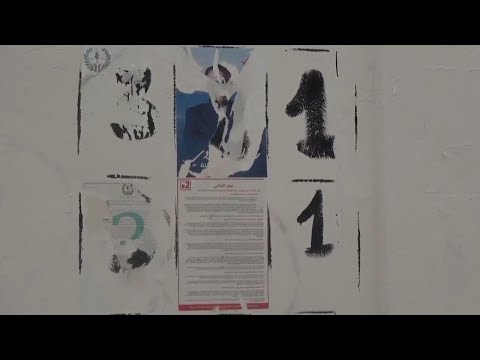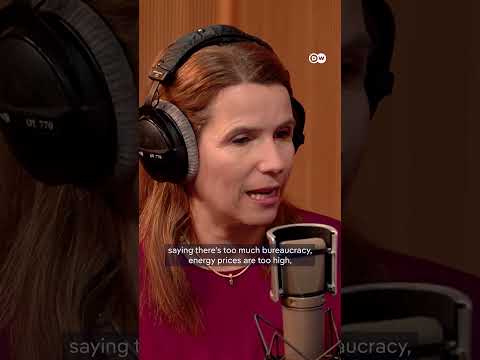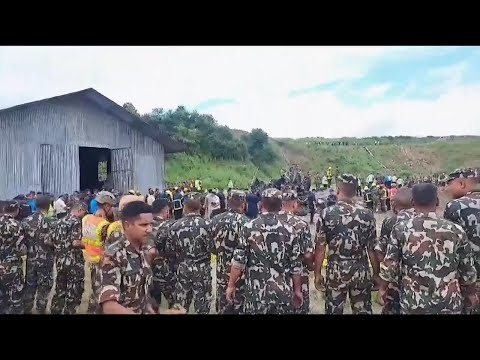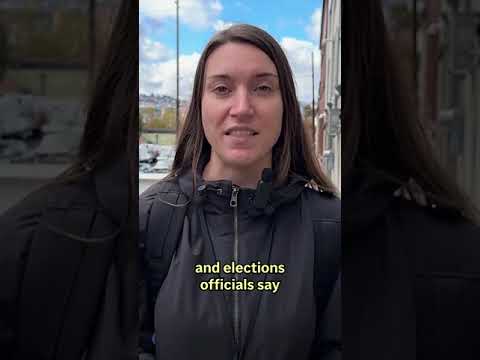(4 Oct 2024)
RESTRICTION SUMMARY:
ASSOCIATED PRESS
La Marsa, Tunis, Tunisia – 2 October 2024
1. Various of fruit vendor Seddik Malki
2. SOUNDBITE (Arabic) Seddik Malki, fruit vendor:
“I want to tell the youth: leave through the sea; there is nothing that keeps us here in Tunisia. Even I, if I find an opportunity, I will go despite owning a truck. I have no future here. Can I gather 50,000 dinars (£13,000) or the price of a house, at least 100,000 dinars ($33,000)?”
3. Various of street vendor Lotfi Hamdi
4. SOUNDBITE (Arabic) Lotfi Hamdi, 32-year-old street vendor:
"I hope that whoever wins the presidential elections will fix the country and pay attention to the youth, especially the high cost of living. A kilogram (2.2 lbs) of cucumbers costs 4.5 dinars ($1.4), tomatoes 1.8 dinars ($0.6), and potatoes 2.4 dinars ($0.8). A daily income ranging from 30 to 35 dinars ($9.7 to $11.3) isn’t enough to buy vegetables, let alone meat."
5. Various of street
6. Various of street vendor Khalil
7. SOUNDBITE (Arabic) Khalil (no last name given), street vendor:
"I think it would be a mistake to elect someone new because they won’t be like Kais Saied (the current president). Kais Saied knows the situation well after five years in power, and there’s no need for someone new who doesn’t understand what’s happening. He should be given an additional chance to fix the problems.”
8. Various of Al-Riyadh Primary School, one of the schools to host October 6 election
9. Various of torn posters of the three presidential candidates
10. Wide of Tunisian flag
STORYLINE:
As Tunisia approaches its Oct. 6 presidential election, the small town of La Marsa near the capital Tunis is witnessing a growing indifference among young people toward politics and the upcoming vote.
While the country prepares to select a new president, the dream of irregular migration to Europe remains the primary aspiration for many young Tunisians.
Street fruit vendor Seddik Malki expresses his despair about the current situation, saying "I want to tell the youth: leave through the sea; there is nothing that keeps us here in Tunisia."
"Even I, if I find an opportunity, I will go despite owning a truck. I have no future here," he added.
Like Seddik, many said they were wondering about the point of staying in a country where securing basic necessities is a challenge.
"A daily income ranging from 30 to 35 dinars ($9.7 to $11.3) isn’t enough to buy vegetables, let alone meat," said Lotfi Hamdi, another vendor at the local market.
Despite the deteriorating economic situation, some still hope that the elections will bring about change.
Khalil, who works at the market, believes that electing a new person would be a mistake.
"Kais Saied knows the situation well after five years in power, and there’s no need for someone new who doesn’t understand what’s happening," he said.
With his major opponents imprisoned or left off the ballot, Tunisian President Kais Saied faces few obstacles to winning reelection on Sunday, five years after riding anti-establishment backlash to a first term.
A poster of the three presidential candidates in La Marsa was torn, a reflection of the public’s frustration and lack of enthusiasm for the electoral process.
The North African country’s Oct. 6 presidential election is its third since protests led to the 2011 ouster of President Zine El Abidine Ben Ali — the first autocrat toppled in the Arab Spring uprisings that also overthrew leaders in Egypt, Libya and Yemen.
International observers praised the previous two contests as meeting democratic norms.
Find out more about AP Archive: http://www.aparchive.com/HowWeWork
Twitter: https://twitter.com/AP_Archive
Facebook: https://www.facebook.com/APArchives
Instagram: https://www.instagram.com/APNews/
You can license this story through AP Archive: http://www.aparchive.com/metadata/youtube/fcecdbaee9614c20b697cdc16abc67ac
Author: AP Archive
Go to Source
News post in October 9, 2024, 9:04 am.
Visit Our Sponsor’s:
News Post In – News





